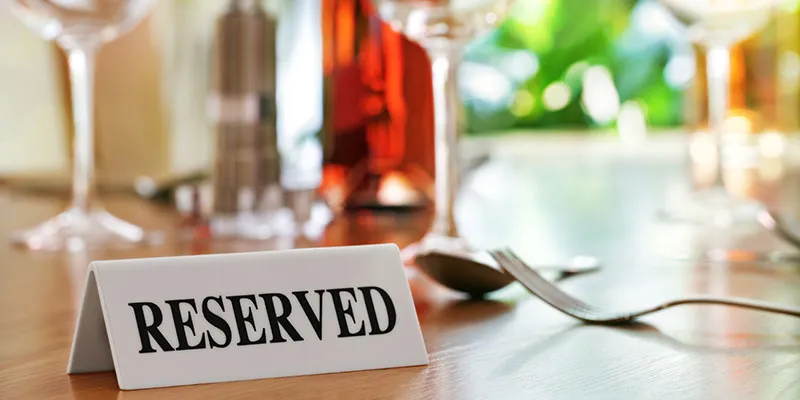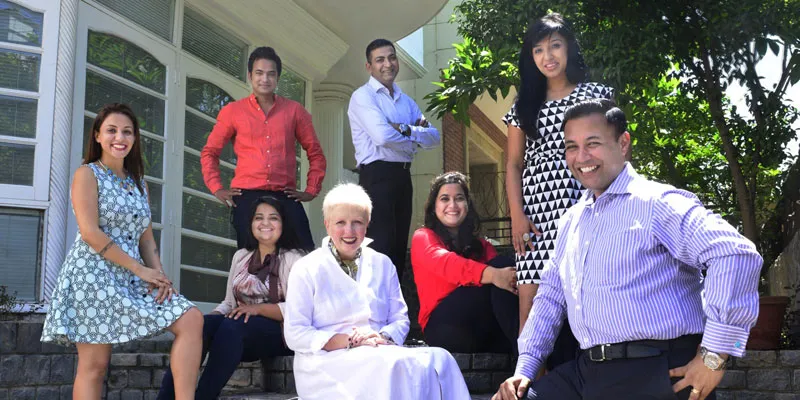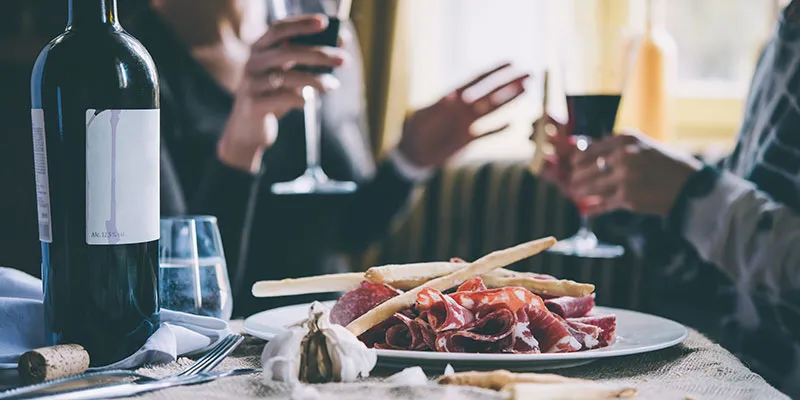My story from being a food writer to building a restaurant reservation platform
I have been writing for close to three decades now and over the years, I have seen interest in food grow tremendously.

Food is something that touches all of us. Over the last few years I have observed that Indians have started travelling extensively to a host of international destinations and consequently their exposure to global cuisine has increased exponentially. This has broadened the Indian diner’s palate canvas tremendously, encouraging a range of international cuisines to wend their way into India, and leading restaurants in India to evolve and take on new ‘avatars’.
Although there is no Michelin Star certification in India, if they were to come calling, I can think of some great restaurants here that would certainly make the cut.
Over the years, I saw the world around me changing in terms of tastes and food preferences. My column in Brunch is read by a million readers every week. Its reach encouraged me to try and make a significant contribution to the dining landscape in the country.
After a while, I still felt that writing a weekly article in a magazine was entirely different from doing something that prompts people to take action.
Here was something to chew about
I had been thinking about this for a long time and one day, after many discussions with my good friend, Deepak Shahdadpuri, some nebulous ideas swirling around suddenly started to crystallize.
Few people understand food better than Deepak does. After having invested in Sula wines when it had only three acres under cultivation (it now has 1800 acres), Deepak was one of the first investors in Riyaz Amlani’s Impresario Hospitality. Today, 'Social’, his uber-young concept, is one of his biggest successes in the restaurant business.
I followed this up with a chat with my friend Kapil Chopra, President at Oberoi Hotels & Resorts. Their new all-day dining concepts like Threesixty° and Threesixtyone° have dramatically changed the scenario for all-day dining restaurants in India and have been major commercial successes.
I cannot forget Gautam Anand from ITC, with whom I rehashed my fledgling ideas umpteen times, and then finally -- it all came together.
Deepak and I were discussing the difficulty we faced in making reservations for restaurants. And this was despite the fact that we knew almost everybody in the business.
A good example is the difficulty in making a dinner booking in the post-lunch period as the restaurants are all closed. In fact, you often stay on tenterhooks, as the restaurant might be sold out.
Alternatively, if you were in Delhi and travelling to Mumbai and wanted to make a table reservation there, either you or your office would have to personally call the restaurant and try to book a table in advance.
Additionally, there was no way to see the menu to help you decide what you wanted to eat, till you actually arrived at the restaurant.
The issue essentially boiled down to the absence of a single place where you could see menus of all the restaurants (ideally with reviews and suggestions) as well as make a booking in multiple restaurants across different price points.
Another angle came to light every time I spoke to the restaurants. Especially with new concept restaurants, the operators would lament the fact that they had no clue how many people would turn up for the meal period, as very few people in India booked in advance.
Sinking my teeth into the food business

There were too many balls up in the air. That is when we decided to do something similar to what is happening globally. Whenever I travel, I always make my restaurant reservations via Open Table. But we wanted to do something bigger than Open Table in India. This led to the idea of trying to get every single restaurant onto one booking platform.
For most people, opening a restaurant is the fulfilment of a long-cherished dream. They just begin to live that dream, when often it starts collapsing, gradually turning into their worst nightmare, as they are unable to fill that restaurant.
I figured that there were bridges that could definitely be linked to fashion a super-highway to the world of food & beverage -- and that is what we decided to create.
We conducted an informal poll of some shortlisted options for a name with some close friends. The clear favourite which emerged was EazyDiner.
The name, quite literally, epitomised exactly what we were trying to do -- make dining easy and fun. The fun and zing we wanted each diner to have in their experience led us to spell ‘easy’ with a ‘Z’.
We started with the Delhi NCR area. The first challenge was to convince hoteliers and restaurant owners to link their businesses with this platform as its sheer reach would increase their food and beverage sale, as far more people would be accessing it.
The next step was to set up a team to implement the idea. This is when I remembered Sue Reitz. She is an India veteran for over 19 years now. She opened Ananda in the Himalayas, The Oberoi, Gurgaon, and Trident hotels in Bandra, Kurla, and Hyderabad in addition to The Aman hotels in Bhutan and Tokyo.

Today, we have over 50 people and we employ some of the best hoteliers. Sue is assisted by Rohit Dasgupta, Chief Operating Officer for EazyDiner, an industry veteran who has worked with the Imperial, the Taj Group, and the Oberoi Group. He left the latter as a General Manager to join us.
At EazyDiner, we try to make dining hassle-free by removing the friction between the diner and the restaurant.
I looked around the Indian landscape. Zomato had done a great job of putting menus online already and had a lot of user reviews. But I wondered if a person would really read over 500 reviews before he or she went to a restaurant? Wasn’t dining supposed to be fun? That is when we thought of an unbiased curated content and insider tips in no more than 100 words.
The sweetness is in eating the pudding
Restaurants need advance reservations to manage their business effectively. So we grappled with how to incentivise people to make reservations, as this required a shift in the basic consumer’s behaviour.
We came up with the concept of a ‘meal enhancer’, which is more than just a discount. Restaurants were asked to offer something special to incentivise diners to book early. Both restaurants and diners saw value in the proposition and we were the perfect platform to deliver that value.
My dream is to see successful restaurants all over the country, thriving and creating a culture of celebration. A city is defined by its culture and dining is a significant part of that culture. Europe is all about cafes and brasseries. Similarly, India needs to be all about great restaurants with great food, whether you eat on a street or in a fine-dining restaurant.
We decided that our diners should have three key insider tips, which they can see at any time. Also, our rating system allowed you to find the top restaurants in Delhi from the food critic’s point of view or user review ratings.
Gaggan in Bangkok has been voted as the best restaurant in Asia, but the popular portals in Bangkok, driven by user reviews, rank it at 216. That ranking can be severely misleading, especially for a restaurant which has a three weeks waiting list for a table.
User reviews can sometimes be manipulated. One of the worst kept secrets is that restaurants go out and seek favours to get user reviews done.
That is why a team of impartial mystery food critics would always be a better judge. If you were coming to India and you wanted to see the top 10 restaurants in Delhi, you want a ‘one-stop shop’ to see them all, research each one and then call to book your table.
The journey does not end here. Today we have signed up nearly 1000 restaurants in four cities. By the end of this year, we will grow to be in 12 key cities, even as other companies in the food technology sector are struggling.
We are aggressive and completely mad about customer acquisition, but we are old world in terms of our obsession with customer satisfaction.
Our vision for the future is very simple. By early next year, we would like to have close to 10,000 restaurants on our portal. An initiative we are working on right now will enable a 20 seater neighbourhood restaurant with an average per cover of less than Rs. 100 to be on the EazyDiner platform so people can even book that.
The journey at EazyDiner started with a dream. But that dream has now turned into a dining revolution.







